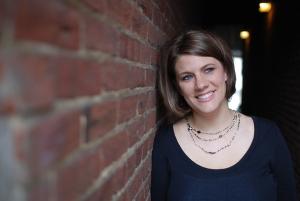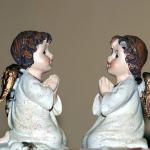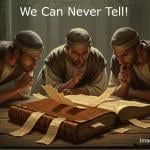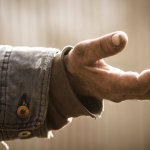My political scientist Dominican priest friend and colleague, who was my teaching partner in our “Faith and Doubt” colloquium during the just-completed spring semester, is kind enough to be a regular reader of this blog. He has mentioned to me more than once over the past several weeks, most recently during our usual beer get-together on Friday afternoons, that he’s been interested to see how closely my blog posts have been tracking our course work this semester. Had he been reading my blog for longer than the past year or so, he would know that this is not unusual. My teaching informs my writing (and vice versa) intimately; I have often said that I’m never sure what I think about a particular idea or topic until I start writing about it.
Another way of putting this is that over the years writing has become my primary form of spiritual practice. In Wholehearted Faith, the final text in “Faith and Doubt” this past semester, Rachel Held Evans expresses this far more eloquently than I have ever been able to (I hate it when people do that).
Writing has taught me a special kind of patience that I am finally learning to apply to my faith. I find myself repeating the same mantras on a day of doubt that I repeat on a day of writer’s block: be patient. Don’t rush it. Live the questions. Let this play out.
Although “live the questions” is an overused trope in some circles that often doesn’t mean much, it resonates strongly with me because it connects my life as a philosophy professor with my life as a person of faith.
I tell my students early on in just about every course I teach that, after almost three decades of doing what I do for a living, it was only a few years ago that I landed on my go-to definition of philosophy: Philosophy is the art of asking better and better questions. This truly is how I conceive of philosophy—the definition has the added virtue of making several practical points to my students at the start of the semester.
- For STEM majors or for the increasing number of business majors on our campus—in other words, for those expecting questions to be answered definitively—philosophy is likely to be frustrating at first.
- Philosophy is the quintessential “perennial” discipline that never gets old. It engages with questions that truly have no definitive answer—such questions are beyond the reach of our natural capacities to answer definitively—but human progress (if you believe there is such a thing) provides us with better and better ways of asking the questions.
- Philosophy as I conceive it calls us back to our childhood curiosity. It is natural to the human being to ask questions about everything—just ask anyone who has ever spent time with a little kid. Somehow this gets beaten out of most of us as we “mature” and become adults. Philosophy calls us back to our youth and out natural state of wonderment.
What does this have to do with the life of faith? Both philosophy and faith call us to never stop wondering, to never stop questioning, and above all to never fall into the trap of certainty.
One of the final books we considered in “Faith and Doubt” was Tomáš Halík’s Patience with God. It was my first time through this evocative and dense book that was suggested by my teaching partner; I’m sure it will be showing up during my writing this summer.
For today, though, it’s enough to simply appreciate the book’s title and the notion that God is something or someone that we need to have patience with. I think most people of faith, at least occasionally, wish that the God they believe in would demonstrably do something—preferably in answer to a specific prayer. But “Let this play out” and “Don’t rush it” are precisely the sort of phrase that resonate with my own faith journey.
In her excellent 2013 book Still, Lauren Winner tells the story of a friend, a pastor’s daughter, who at twelve years of age on the eve of her confirmation service told her father that she was having second thoughts about whether she should be confirmed. She didn’t know that she really believed all of the things she was supposed to believe, and she was particularly concerned about professing in front of the church that she was ready to believe these things forever. Her wise father responded that “What you promise when you are confirmed is not that you will believe this forever. What you promise when you are confirmed is that this is the story you will wrestle with forever.”
As a preacher’s kid myself, I greatly appreciate this pastor’s loving response to his daughter. The larger religious world in which I grew up was all about certainty, inerrancy, and doctrinal purity. My father was a minister in that world, but over the years I observed him wrestle with the story regularly, evolving from the national vice president of the Independent Fundamental Churches of America to a tongues-speaking charismatic whose primary focus was facilitating the health of those who had been damaged by bad religion. Although we had few explicit conversations about his evolution, I learned by observation that “adventuring with God,” as he would have described it, was exactly that—an adventure. Furthermore, it is not for the faint of heart.
I introduced our “Faith and Doubt” students to Rachel Held Evans during the final week of our semester by viewing together a talk she gave at Lipscomb University in 2015. Lipscomb is a conservative Protestant university, but Evans had the courage to be honest and direct about the doubts that were her constant companions as she evolved from hardcore conservative evangelical Protestant into one of the most important and dynamic voices of progressive Christianity before her untimely death in 2019. Toward the end of her talk, she addressed the question that I’m sure many in the audience that evening were asking.
Why am I still a Christian? Because as hard as that story is to believe, it’s still the story I’m willing to be wrong about.
I often quote Alasdair MacIntyre’s observation that understanding human behavior and morality begins with realizing that we are narrative creatures. Human beings are storytelling animals. And our life-defining stories change and morph as we grow. My own faith story has evolved and changed so much over the years that those who are still living within the boundaries of the version of the story I began with frequently claim that my story is no longer recognizable to them. But that’s okay, because the larger story is broad and vibrant enough to accommodate many versions.
Once a number of years ago I asked a seminar of twelve honors freshman a question that stopped them in their tracks. Our texts for the day were Luke, Acts, and Romans from the New Testament. I teach at a Catholic college; I knew from previous conversations that the majority of my seminar students had been raised Catholic and educated in Catholic parochial schools. “What if it could be proven definitively, beyond the shadow of a doubt, that Jesus never existed and all of these stories are just that—stories?” I asked. “What difference would it make to your faith? Would you remain a Christian?”
After what seemed like an eternity of silence, a young woman who seldom contributed in seminar raised her hand. “Yes, I would still be a Christian,” she said, “because being a Christian helps me be a better person than I would be without it.” At the early age of eighteen this student already had learned something about what makes a story true. The truth of a story has little to nothing to do with the “facts” of what did or didn’t happen. The truth of a story is revealed in the impact it makes in one’s life. Some stories are worth risking being wrong about.













